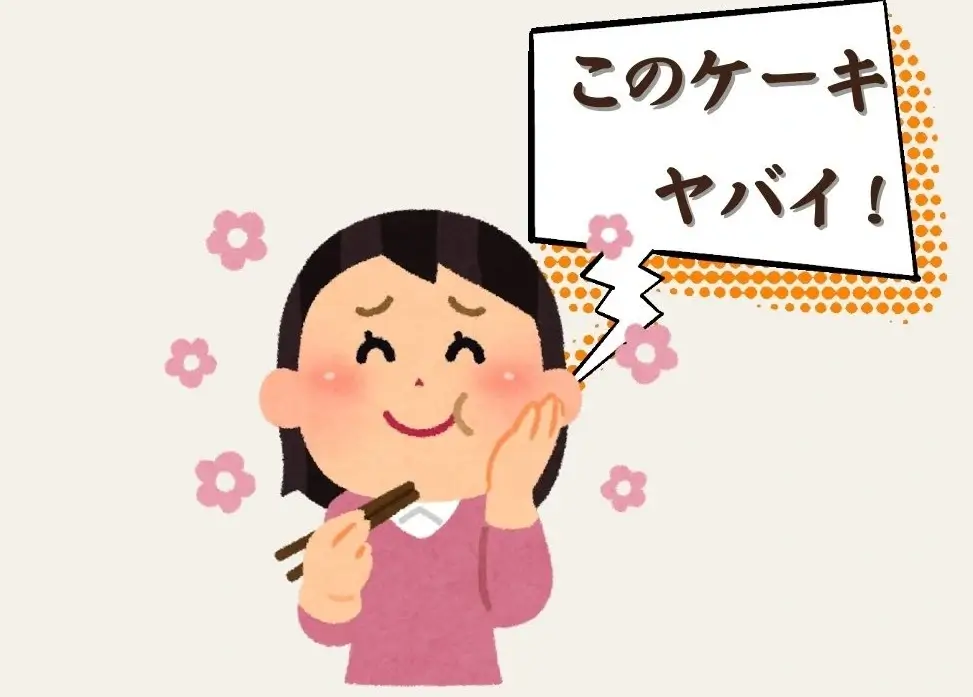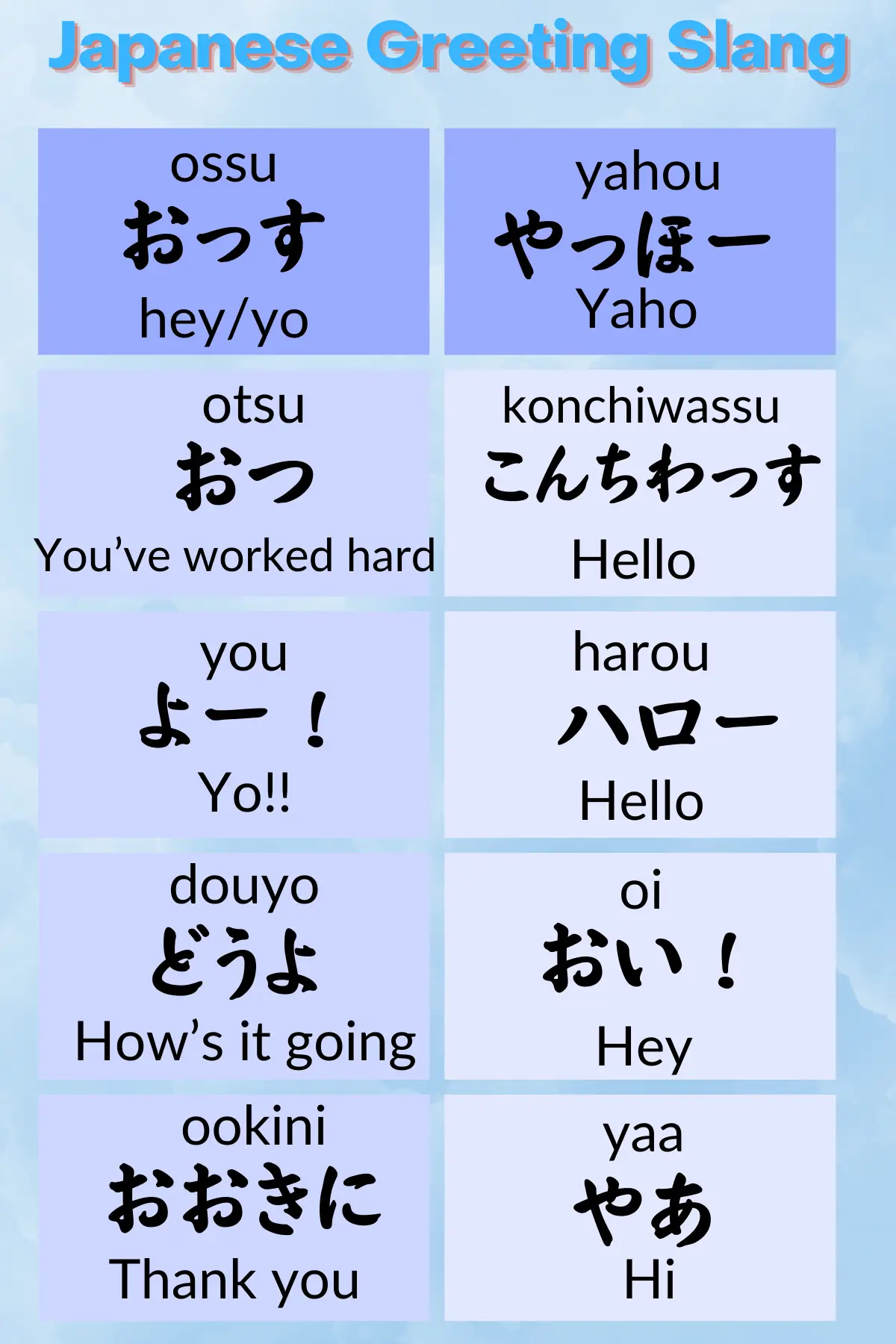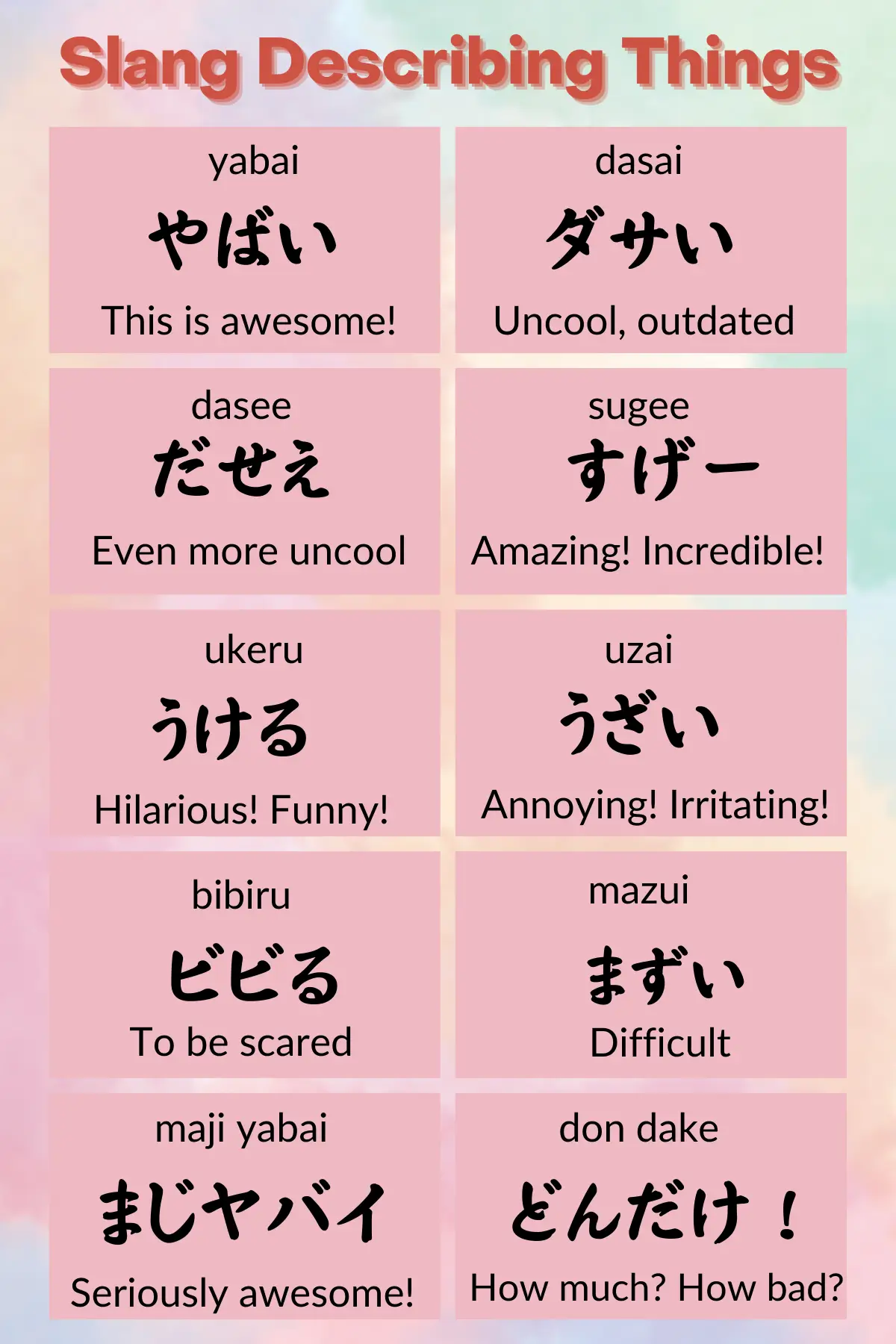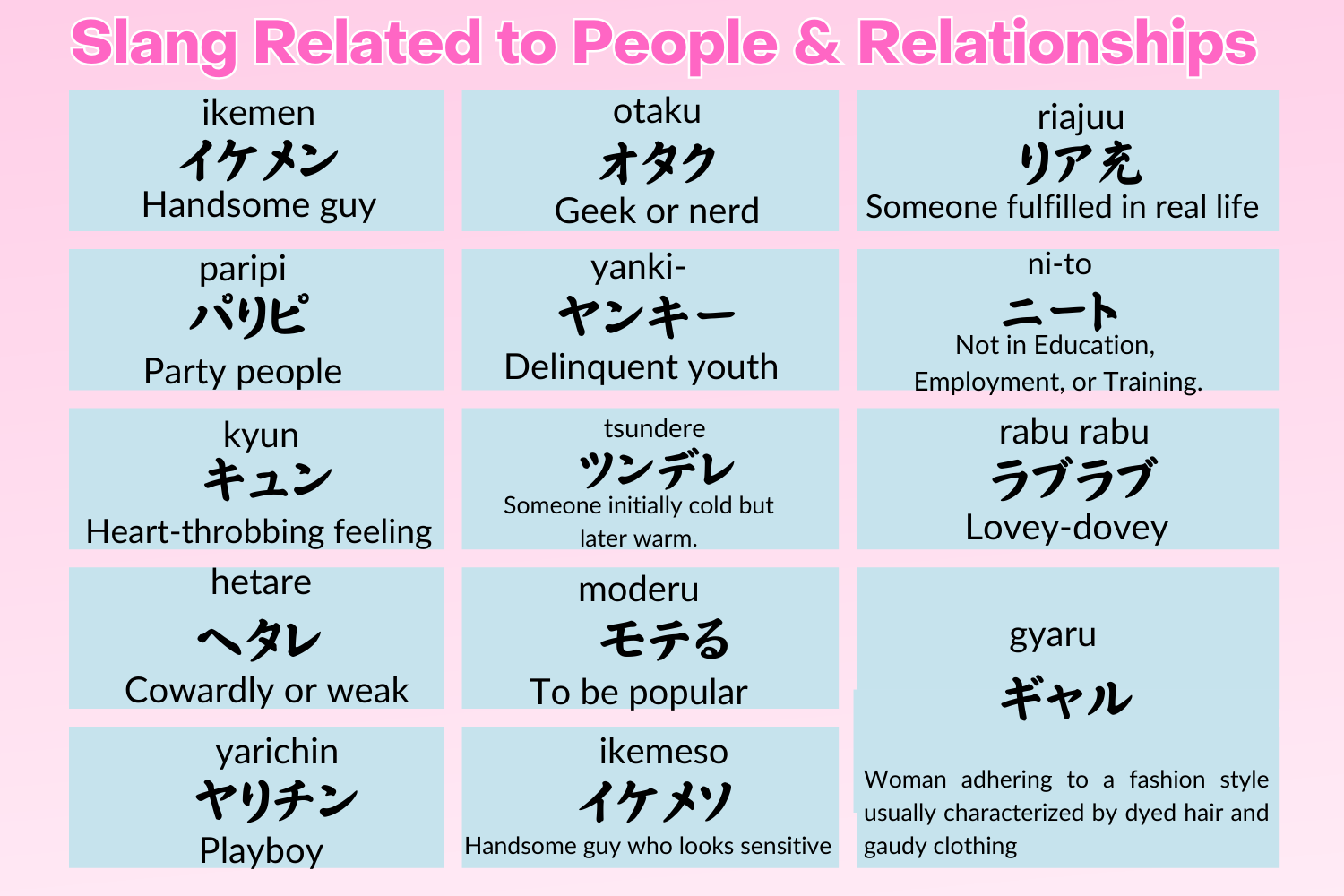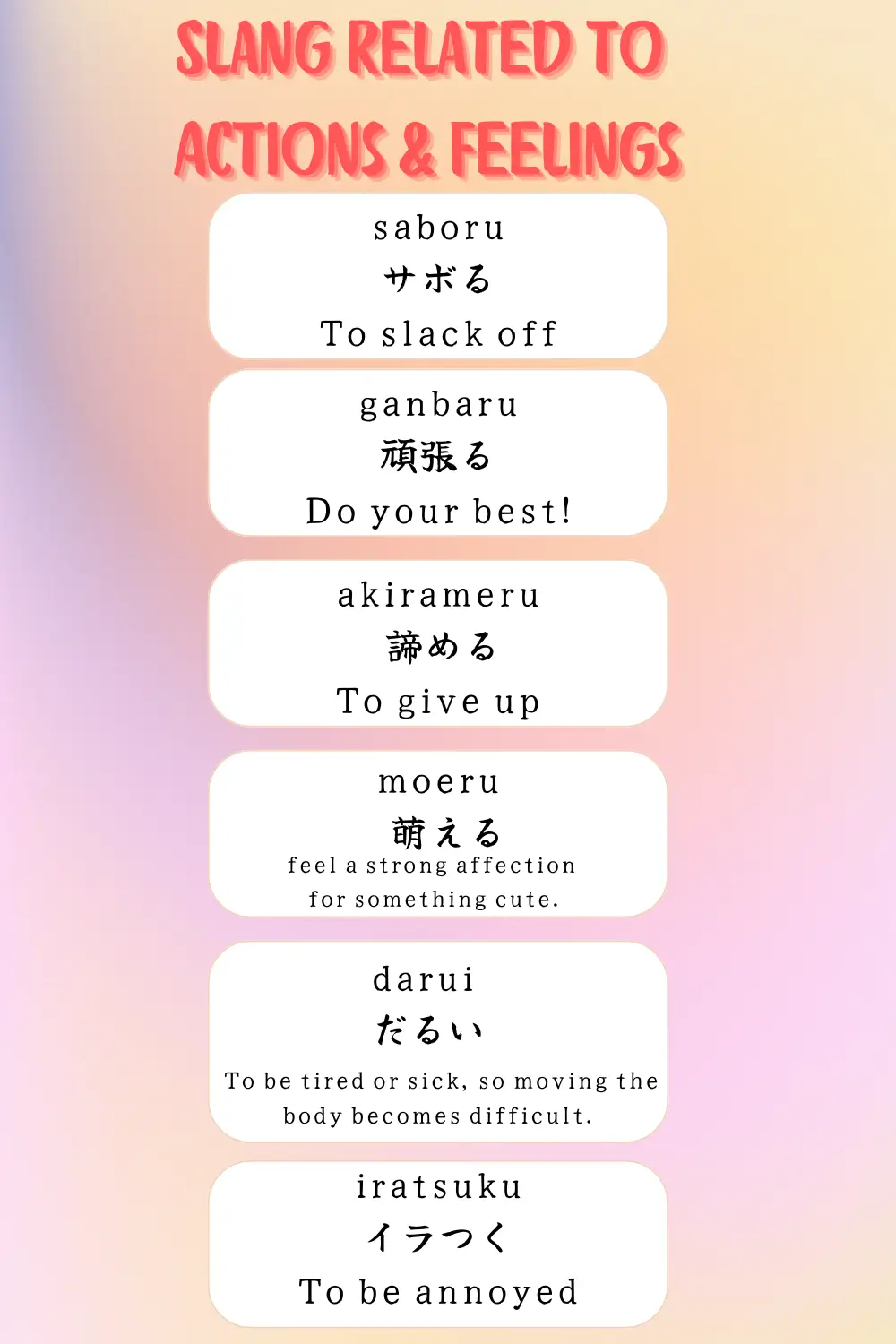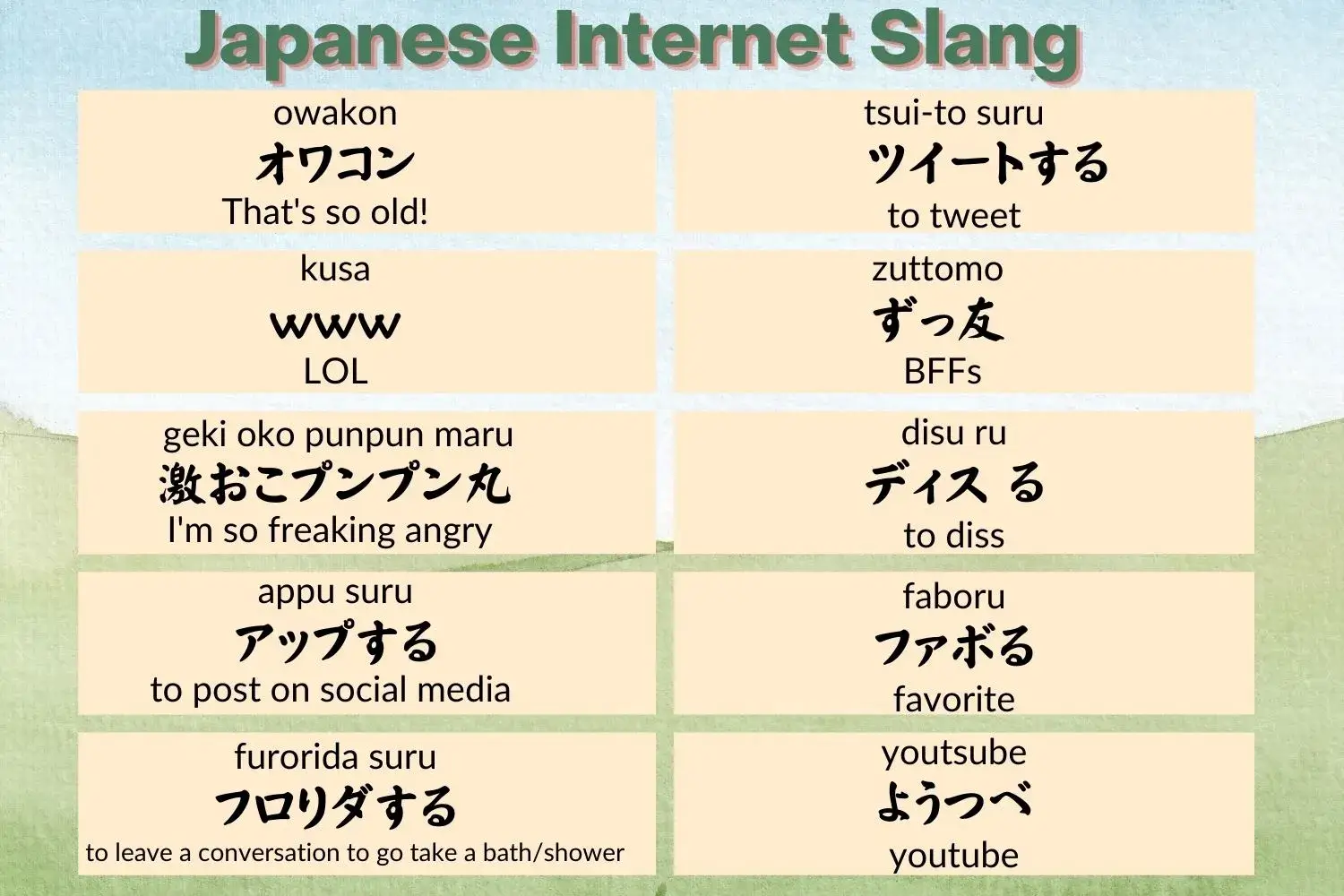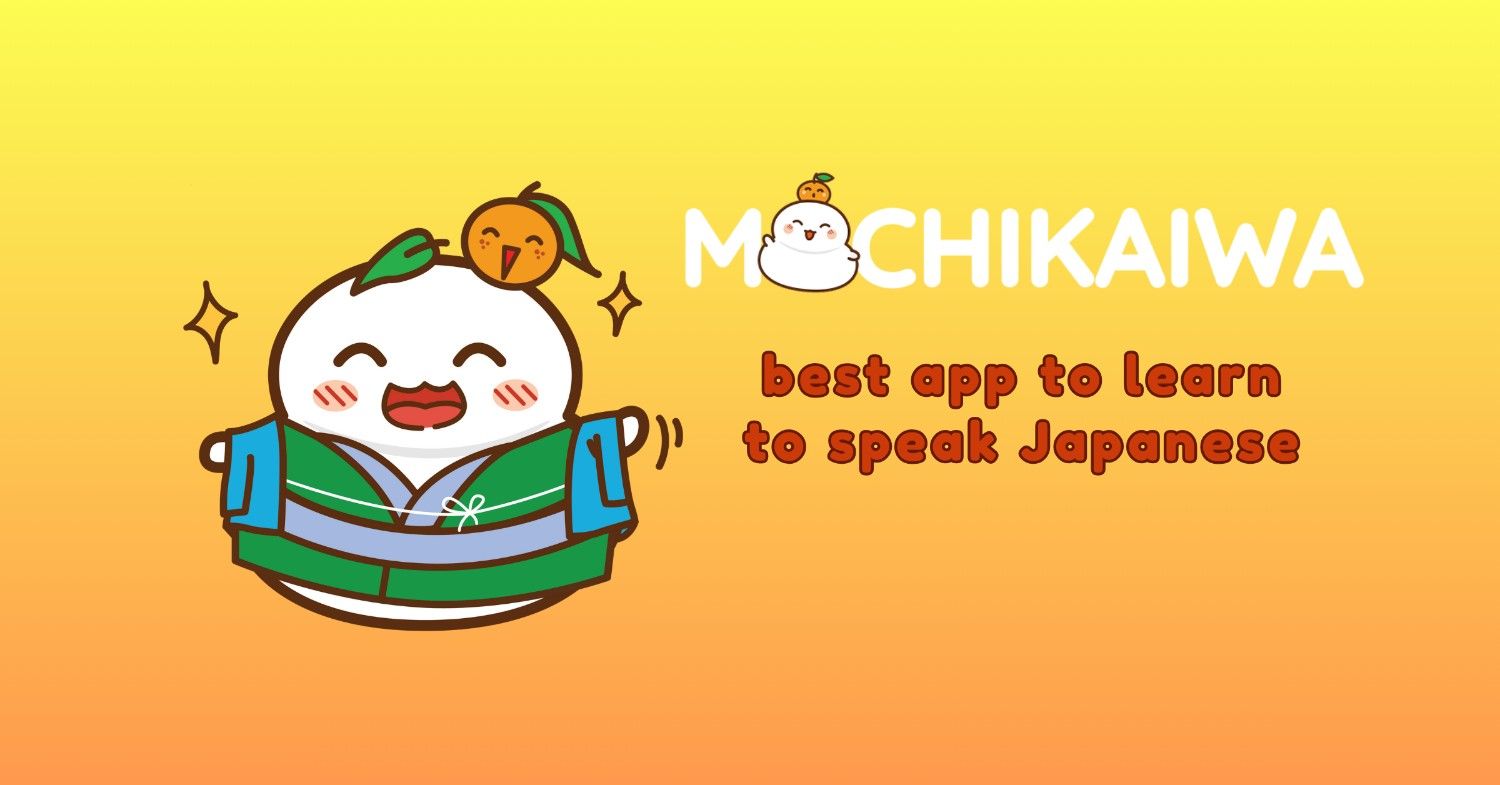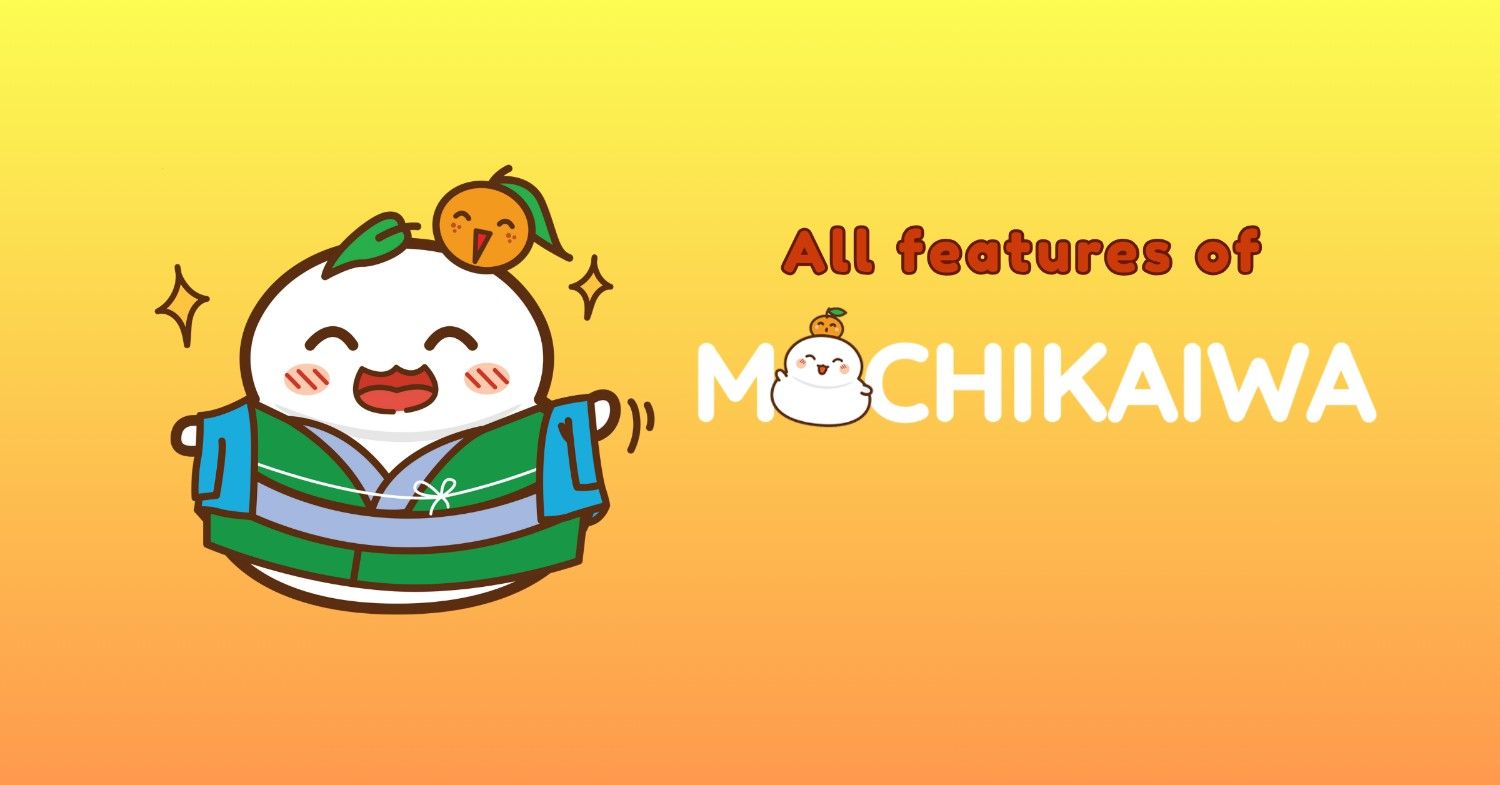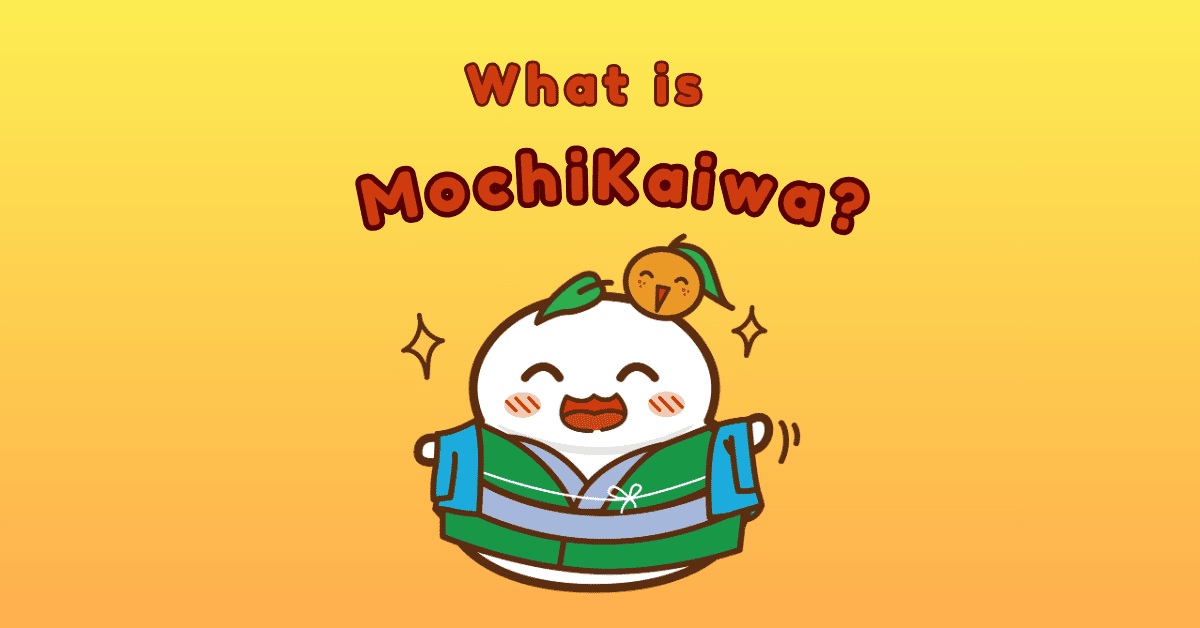Japanese is a captivating language with numerous layers, and slang adds an extra flavor to it. Learning slang not only makes conversations more enjoyable but also helps you sound more natural and in tune with Japanese culture. Let’s delve into what Japanese slang is, why it’s worth learning, and discover 50 slang terms you should know.
- What is Japanese slang?
- Why should we learn Japanese slang?
- 50 Japanese Slangs You Need to Know
- Want to master slang in Japanese?
- Conclusion

What is Japanese slang?
Japanese slang is like the secret handshake of Japanese conversation. It’s the informal lingo used by friends, teenagers, and online communities to express themselves in a fun, creative way. Unlike the formal Japanese you might encounter in textbooks, slang is constantly evolving, reflecting current trends, pop culture references, and how young people perceive the world.
Here’s an example: The formal way to say “wonderful” in Japanese is “すばらしい (subarashii),” but the slang term is “やばい (yabai).” “Yabai” can also mean “bad” depending on the context, showcasing how slang can be more playful and versatile than formal language.
Learning Japanese slang unlocks a deeper understanding of Japanese culture. You’ll be able to grasp jokes, understand casual conversations on social media, and impress native speakers with your knowledge of their hidden language.
To expand your Japanese vocabulary effectively, try MochiKanji. It offers interactive flashcards and well-structured lessons designed to help you learn and retain new words with ease.
Why should we learn Japanese slang?
Textbooks are cool, but who wants to talk like a robot? Slang is your secret weapon to sound natural and impressive to your Japanese friends. Here’s why we should learn Japanese slang:
- Using slang appropriately can make you sound more like a native speaker. It helps you blend in better during casual conversations and understand the nuances that formal language might miss.
- Understanding slang enables you to follow conversations more easily, especially among young people and on social media. It can also help you catch jokes, idioms, and colloquial expressions that might otherwise be confusing.
- Learning slang is enjoyable and can make your language study more exciting. It introduces you to playful and creative uses of the language, making the learning process less monotonous.
- Using slang can help you connect better with native speakers, showing that you have a good grasp of their language and culture. It can make interactions more relaxed and friendly.
50 Japanese Slangs You Need to Know
So, let’s dive into 50 awesome Japanese slang terms you can use to spice up your conversations!
Greeting Slang
1. おっす!(ossu!) – Hey/yo
2. やっほー!(yahou) – Feeling playful? “Yaho!” is a fun way to get someone’s attention, kind of like calling out to a friend at the park.
3. こんちわっす (konchiwassu) – Hello
4. おつ (otsu) – You’ve worked hard
5. よー!(you) – Yo!
6. ハロー(harou) – Hello
7. どうよ?(dou yo) – How’s it going?
8. おい!(Oi) – Hey!
9. おおきに (Ookini) – Thank you
10. やあ (Yaa) – Hi
Slang Describing Things
11. やばい (yabai) – This is awesome! (Can also mean “bad”)
12. ダサい (dasai) – Uncool, outdated
13. だせえ (dasee) – Even more uncool (rude version of “dasai”)
14. すげー (sugee) – Amazing! Incredible!
15. うける (ukeru) – Hilarious! Funny!
16. うざい (uzai) – Annoying! Irritating!
17. ビビる (bibiru) – To be scared (informal)
18. まずい!(mazui) – Difficult
19. まじヤバイ (maji yabai) – Seriously awesome!
20. どんだけ!(don dake) – How much? How bad? (Used for emphasis)
Slang Related to People & Relationships
21. イケメン (ikemen) – Handsome guy.
22. オタク (otaku) – Geek or nerd.
23. リア充 (riajuu) – Someone fulfilled in real life.
24. パリピ (paripi) – Party people.
25. ヤンキー (yanki-) – Delinquent youth.
26. ニート (ni-to) – Not in Education, Employment, or Training.
27. キュン (kyun) – Heart-throbbing feeling.
28. ツンデレ (tsundere) – Someone initially cold but later warm.
29. ヘタレ (hetare) – Cowardly or weak.
30. モテる (moteru) – To be popular with the opposite sex.
31. ラブラブ (rabu rabu) – Lovey-dovey.
32. ヤリチン (yarichin) – Playboy.
33. イケメソ (ikemeso) – Handsome guy who looks sensitive.
34. ギャル (gyaru) – Woman adhering to a fashion style usually characterized by dyed hair and gaudy clothing
To learn more Japanese vocabulary, try MochiKanji now!
Slang Related to Actions & Feelings
35. サボる (saboru) – To slack off (Skip work/school)
36. 頑張る (ganbaru) – Do your best! Give it a shot!
37. 諦める (akirameru) – To give up
38. 萌える (moeru) – means to feel a strong affection for something cute.
39. だるい (darui) – To be tired or sick, so moving the body becomes difficult.
40. イラつく (iratsuku) – To be annoyed (Feeling irritated)
Japanese Internet Slang
41. オワコン (owakon) – That’s so old!
42. ツイートする (tsui-to suru) – to tweet
43. www (kusa) – LOL
44. ずっ友 (zuttomo) – BFFs
45. 激おこプンプン丸 (Geki oko punpun maru) – I’m so freaking angry
46. ディス る (disu ru) – to diss
47. アップする (appu suru) – to post on social media
48. ファボる (faboru) – Favorite
49. フロリダする (furorida suru ) – to leave a conversation to go take a bath/shower
50. ようつべ (youtsube) – youtube
Want to master slang in Japanese?
Look no further than the MochiKanji app! MochiKanji stands out for its innovative approach, boasting a comprehensive lessons section meticulously curated to cover vocabulary by topic, ensuring a well-rounded understanding of the language. Whether you’re a beginner eager to grasp the basics or an advanced learner striving for fluency, MochiKanji caters to your needs with its user-friendly interface and engaging content.
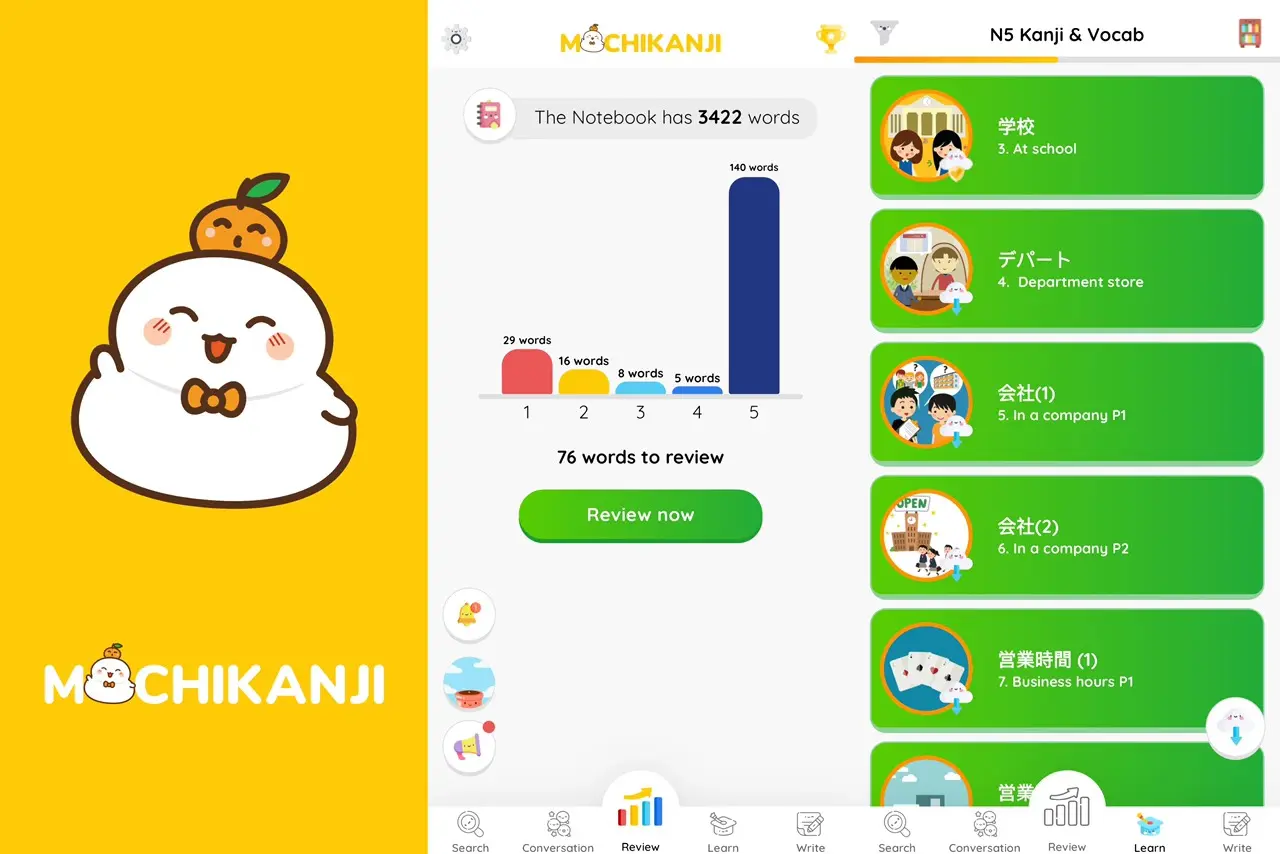
The MochiKanji-Learn Japanese offers structured lessons on familiar topics, starting with basic vocabulary and gradually moving to more complex words, which enhances language proficiency. It uses the Spaced Repetition System (SRS) with “Golden Time” to optimize study sessions by determining the best times to review, improving memory retention through strategic timing.
When you first learn a new word, you might remember it easily, but over time, the memory starts to fade. The key to SRS is to prompt you to review the word just as you are about to forget it. This process is repeated with increasing intervals between reviews, ensuring that the word moves from your short-term memory to your long-term memory.
The app schedules reviews at optimal intervals, so you spend less time reviewing words you already know well and more time on those you’re about to forget. This targeted approach means you can learn and retain a larger number of words in a shorter period of time.
This strategic approach ensures that you study and retain Japanese vocabulary more effortlessly. Additionally, MochiKanji’s user-friendly interface makes it easy to track your progress and see which words need review.
The MochiKanji app serves as a reliable guide, akin to a supportive friend, nurturing your Japanese language skills and fostering improvement. It stands out as a highly effective tool for learning Japanese, particularly beneficial for beginners embarking on their Japanese language journey.
Conclusion
Mastering Japanese slang is an invaluable asset for language learners, enabling deeper cultural understanding and more authentic communication. With these 50 essential slangs and tools like the MochiKanji app at your disposal, you’re well-equipped to navigate the rich tapestry of the Japanese language with confidence and proficiency. Happy learning!

